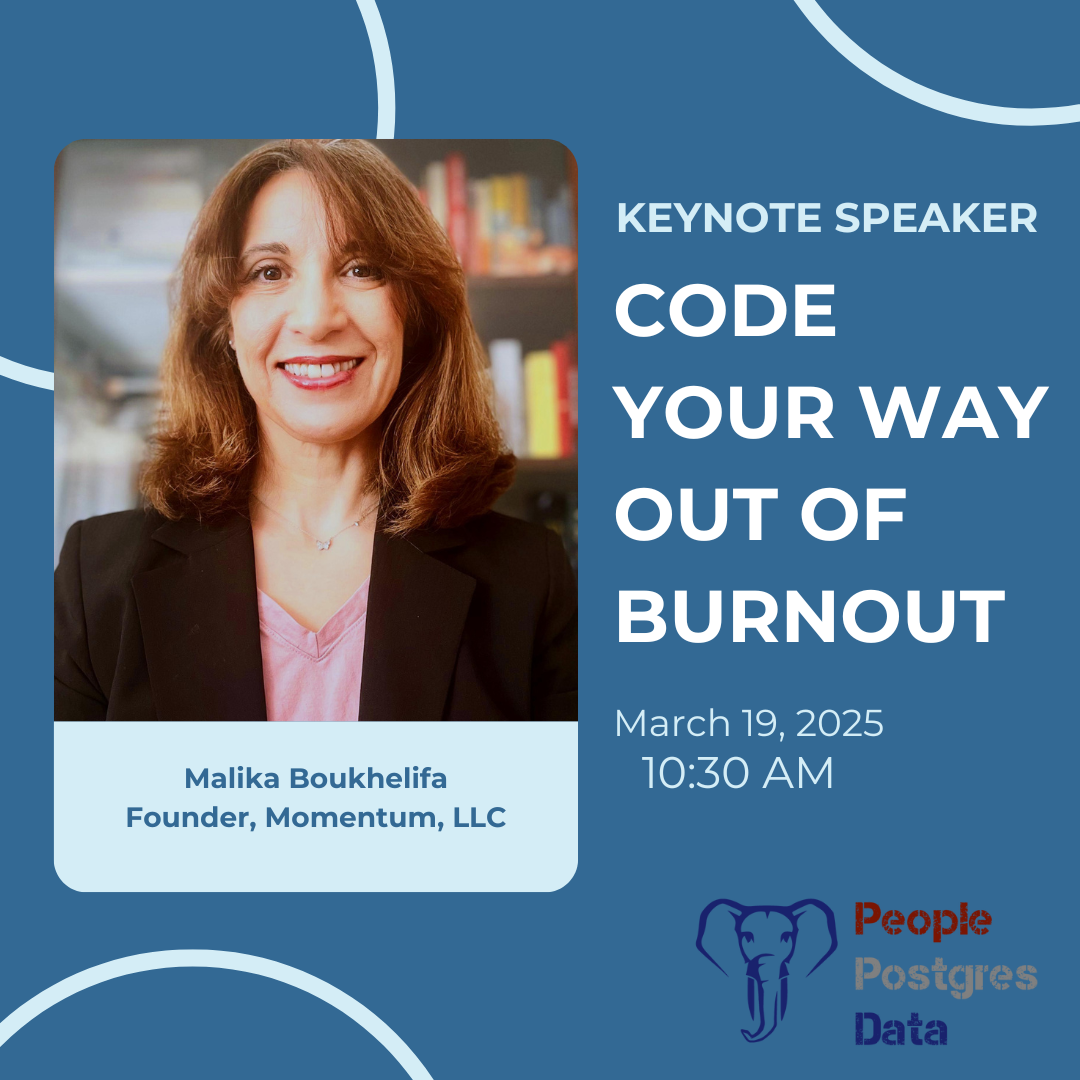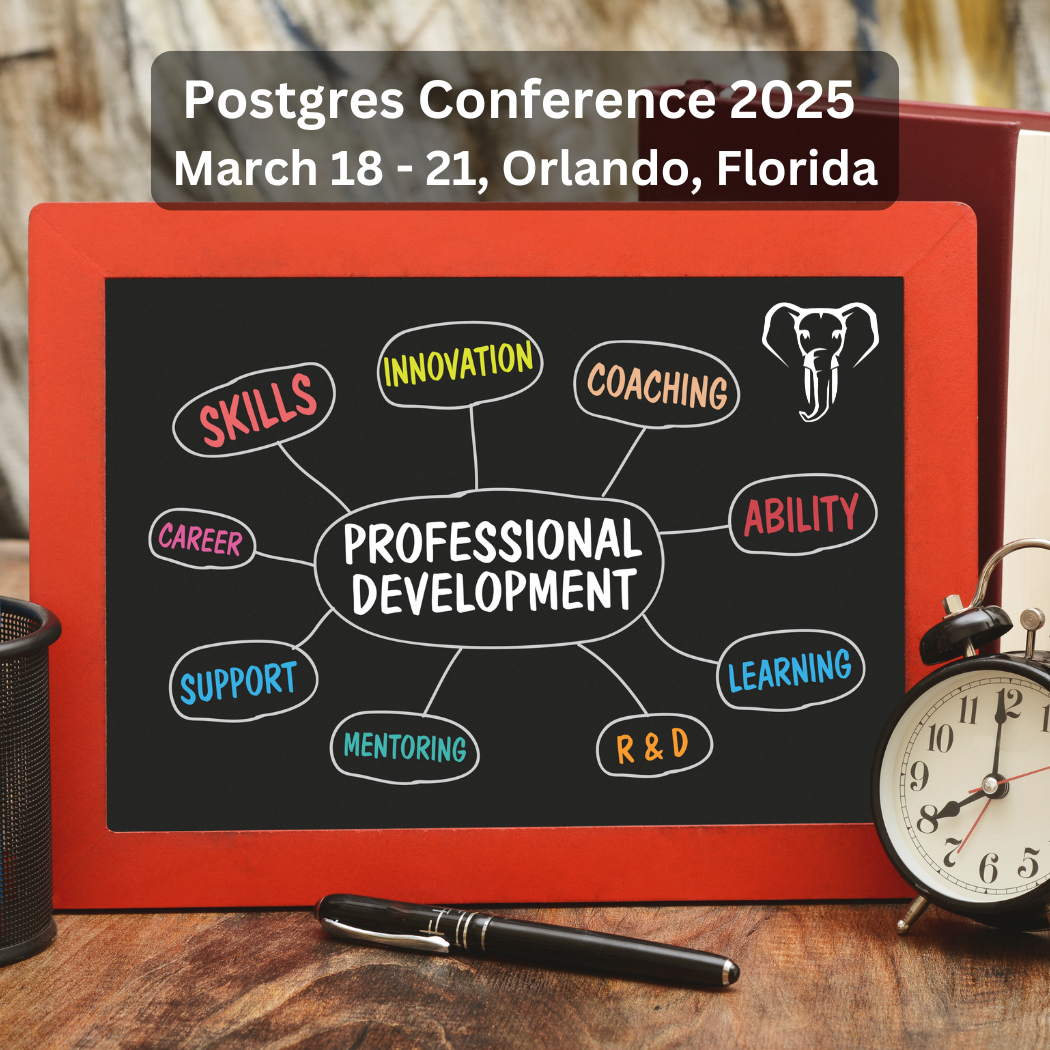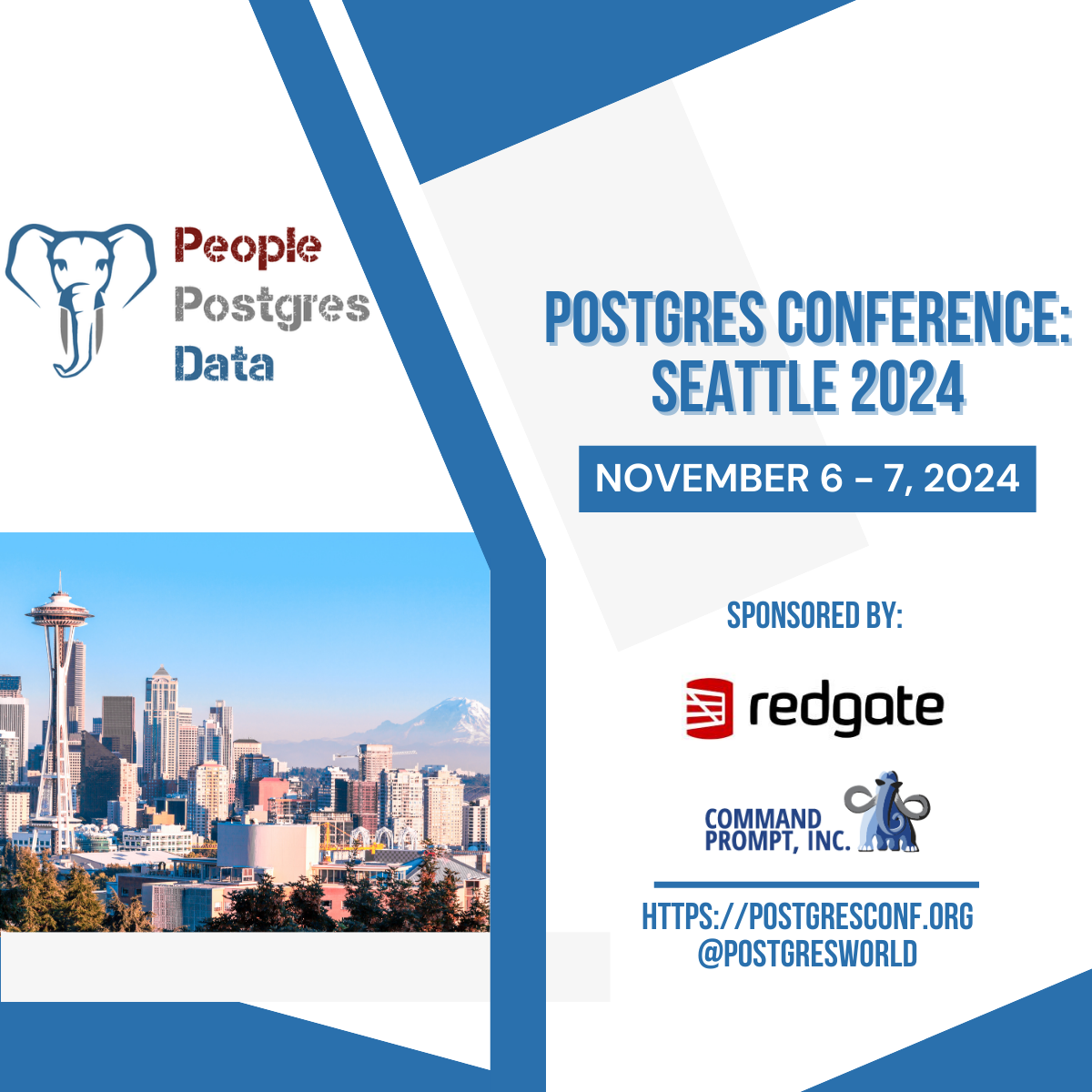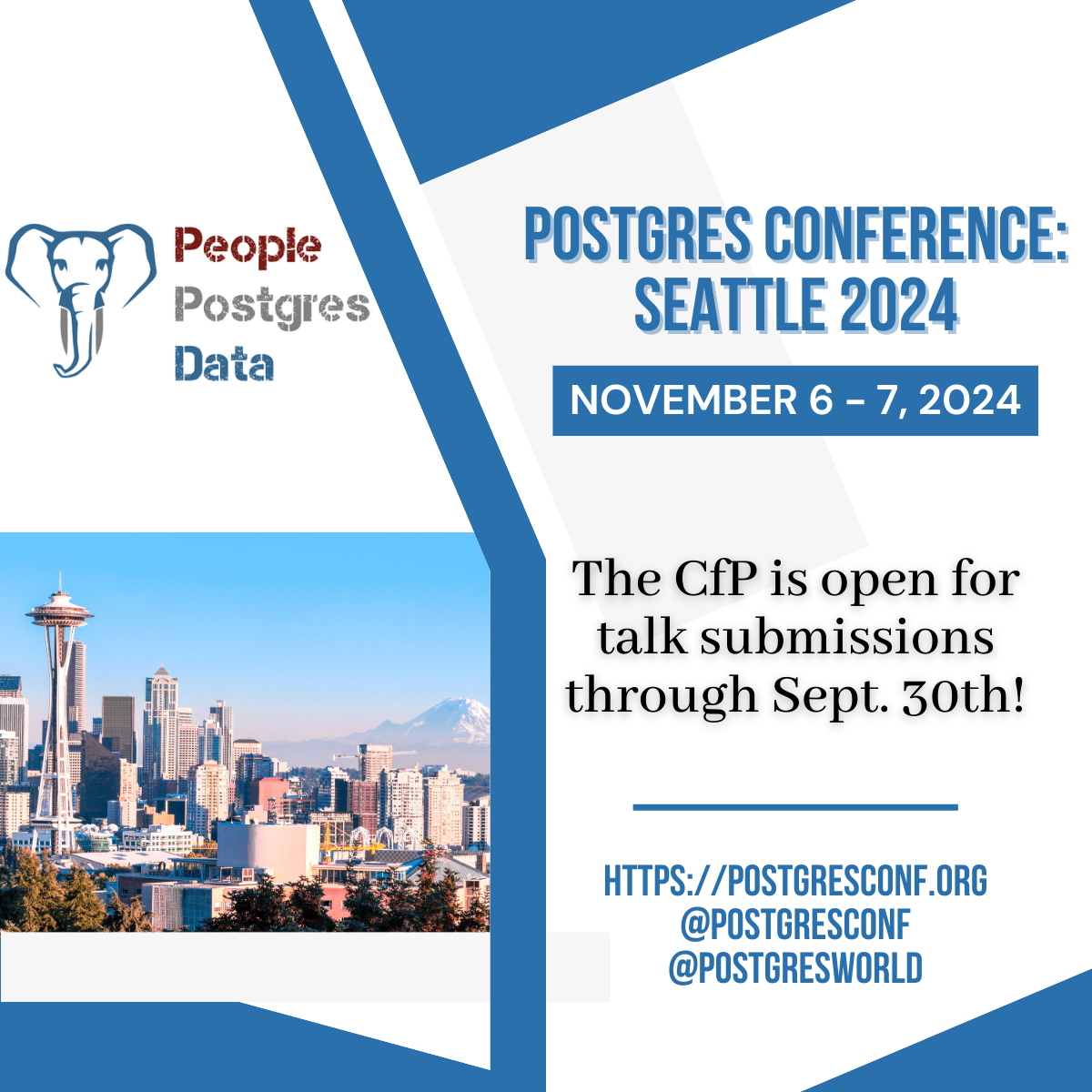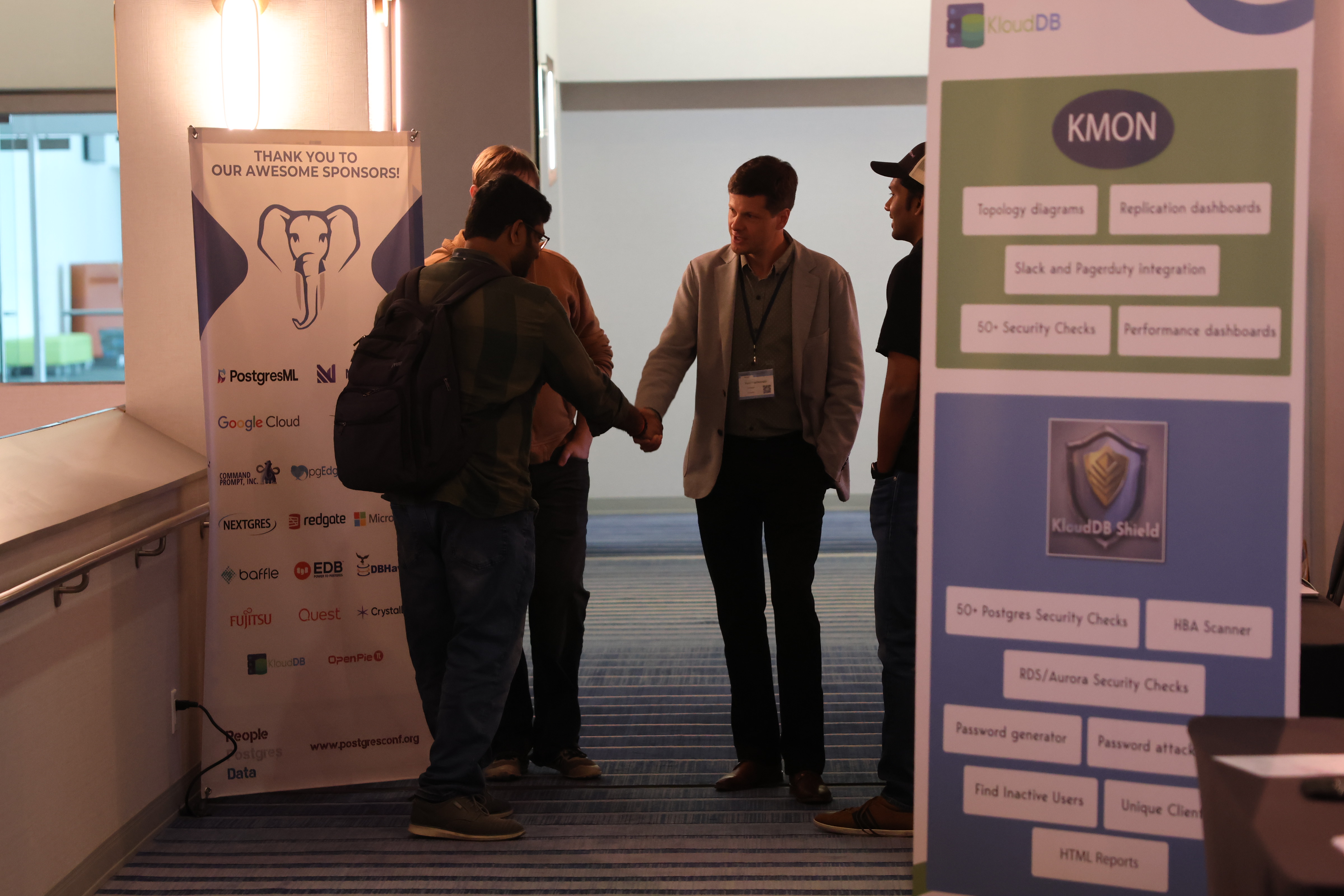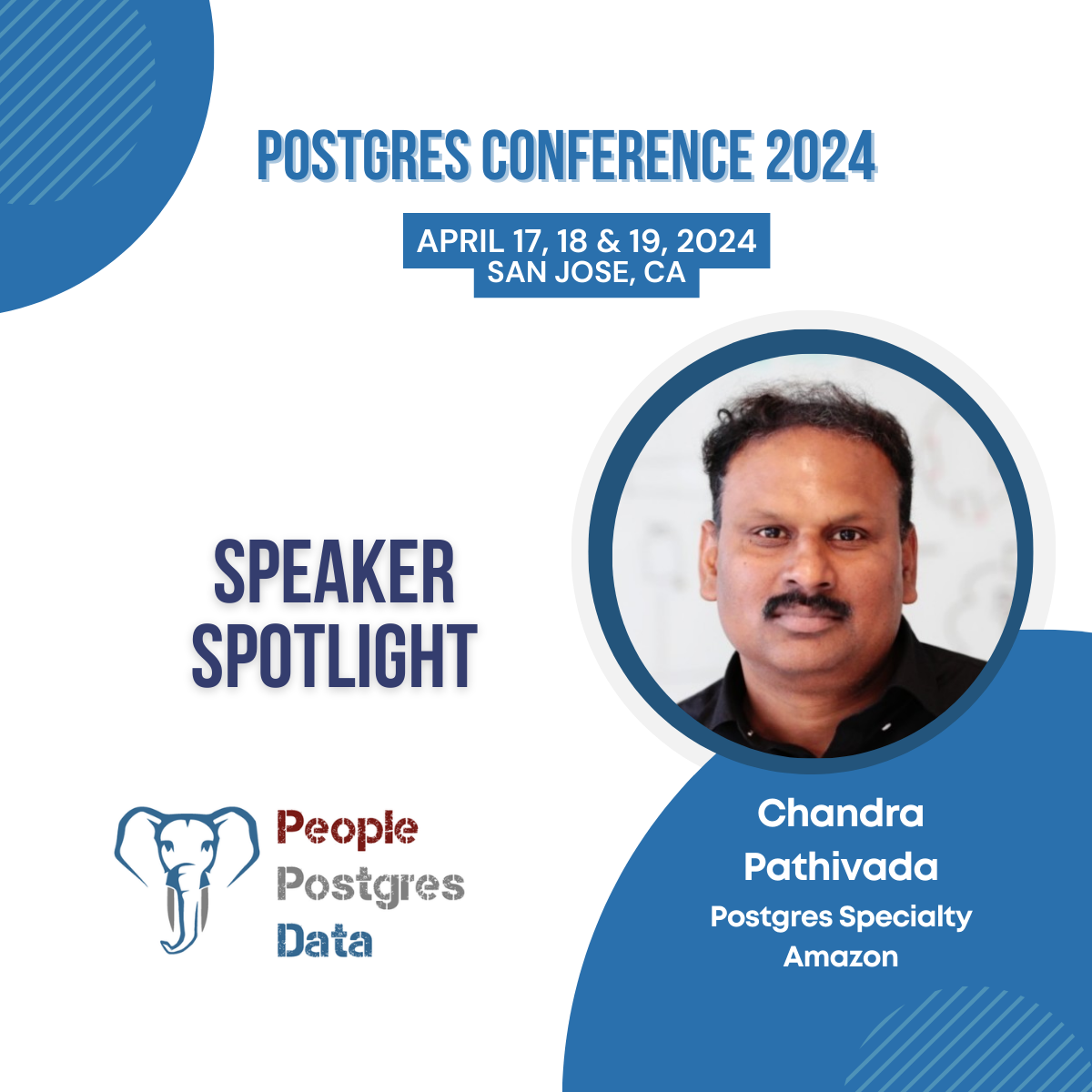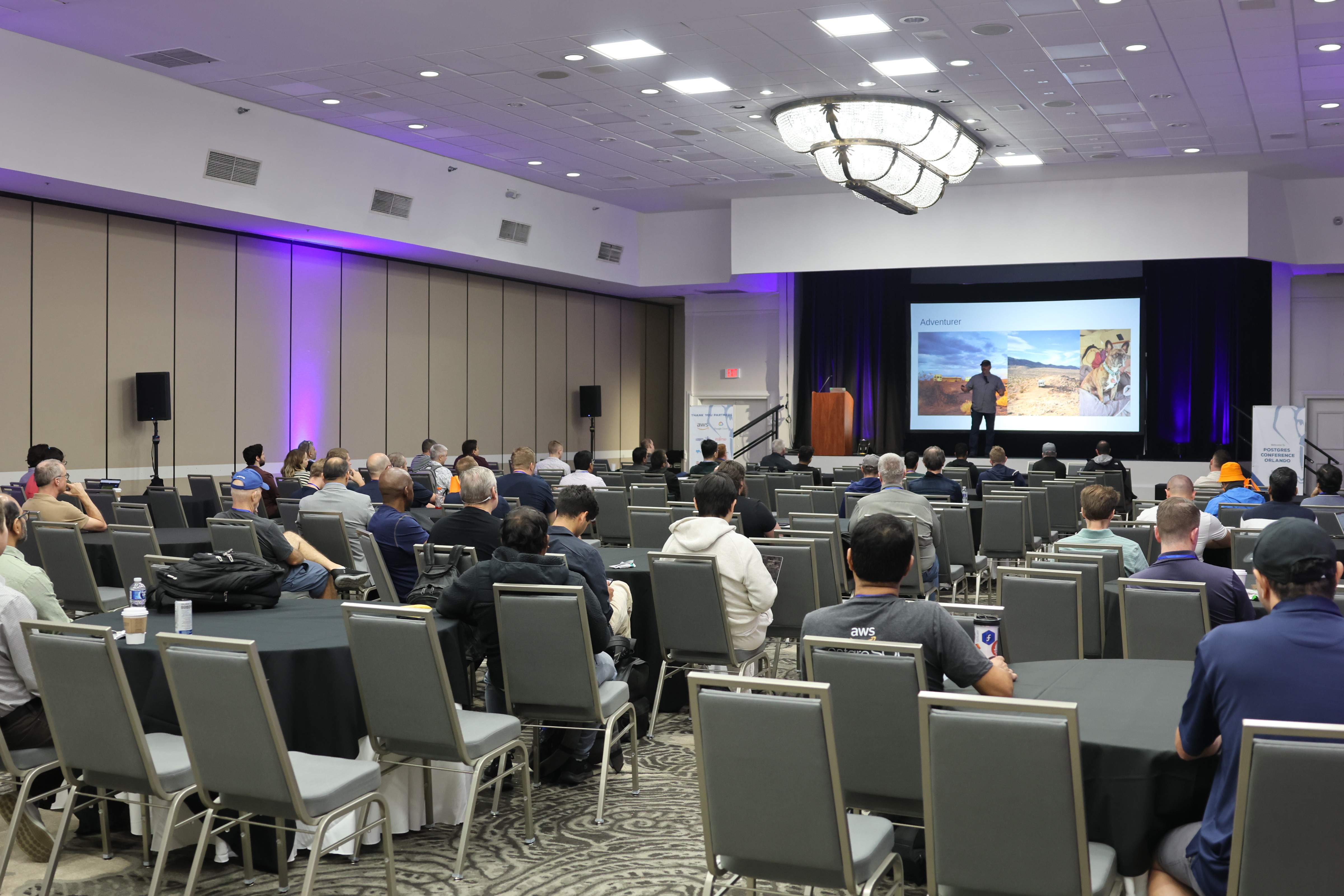
Postgres Conference 2025 in Orlando, held March 18–21, brought together PostgreSQL professionals from around the world for a week of deep technical learning, professional development, and intentional networking. With expanded tracks and thoughtfully curated sessions, this year’s gathering balanced core database expertise with a growing focus on holistic professional growth.
Event Highlights
-
Expanded Tracks: In addition to the core DevOps, and Essentials tracks, the conference introduced Professional Development and Variants & Cloud tracks. These additions reflected the complexity of today’s tech environments and the evolving needs of those who manage them.
-
Keynote Address: Malika Boukhelifa’s keynote, “Code Your Way Out of Burnout,” addressed the role of mental health in sustainable tech careers and provided attendees with strategies for long-term success.
-
Technical Deep Dives: Popular sessions on
pg_vector, analytics with DuckDB, and PostgreSQL partitioning strategies demonstrated the community’s interest in advanced features and real-world applications. -
Professional Development: The new track featured sessions on leadership, communication, and soft skills. Certified Wellness Coaches were also available onsite, offering support and tools to help attendees prioritize mental wellness alongside technical growth.
-
Community and Networking: Conversations flowed freely in workshops, hallway meetups, and evening events like the tropical-themed buffet. The size and format of the event allowed for stronger peer connections and genuine knowledge exchange.
This year’s more focused format was intentional. The smaller scale fostered deeper discussion, better engagement, and more actionable takeaways. Whether tackling database replication or burnout prevention, attendees walked away with tools they could apply immediately. We would not be able to accomplish this without the generous support of our sponsors and partners.
Looking ahead, we plan to cap attendance in future years to preserve the quality and depth of the experience. Postgres Conference is no longer designed to be the largest event. Its goal is to be the most effective.
Want to stay updated on future Postgres Conferences and community news?
Subscribe to the PostgresWorld Substack for first access to upcoming events, announcements, and insights from the PostgreSQL ecosystem.
